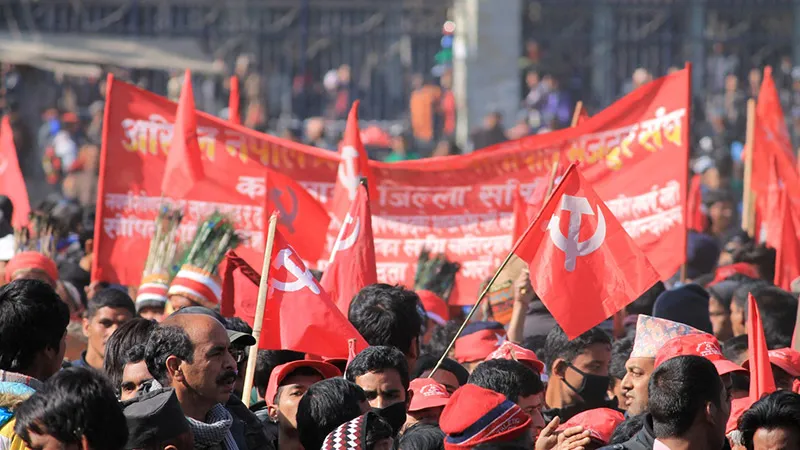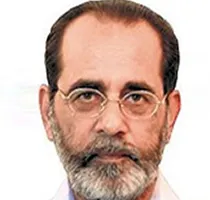-
CENTRES
Progammes & Centres
Location

In less than a week, Maoist leader Pushpa Kamal Dahal ‘Prachanda’ is likely to be sworn in as the ninth Prime Minister of Nepal in the last eight years, since it was declared a republic in 2008. Prachanda’s bid for PMship is supported by the Nepali Congress (NC). However, according to the understanding between Prachanda and NC leader Sher Bahadur Deuba, Prachanda’s tenure will be for nine months and by May 2017, he will step down to support Deuba as PM.
This will be Prachanda’s second stint as the PM. Coincidentally, his first stint as the PM was also only nine months long. It began in August of 2008 and ended in May of 2009, rather ignominiously, because his coalition partners quit the government over his decision to sack the army chief General Rookmangud Katawal which was not upheld by President Ram Baran Yadav, forcing Prachanda to resign. Since losing the power, Prachanda has seen a weakening of his party when his long term colleague Dr. Baburam Bhattarai emerged as a more acceptable candidate for PMship in 2011 and last year, split the party. He also saw the Maoists’ strength in the Assembly undergo a sharp fall from 229 in 2008 to 80 in 2013. From all accounts, Prachanda is a wiser politician today and his second stint might therefore end on a successful note of political rehabilitation.
Last October, Maoists had backed CPN (UML) leader Khadga Prasad Sharma Oli’s bid to become PM and consequently, the NC occupied the opposition benches. However, since May this year, it was clear that the coalition was faltering. On May 4, Prachanda had announced that the Maoists were pulling out of the coalition, but within twenty four hours, a patch up had taken place. The unwritten part of the agreement was that after the budget, PM Oli would step down and support Prachanda as PM. Clearly, Oli changed his mind and with NC’s backing, Prachanda withdrew Maoist support from Oli’s government on July 12. A no confidence motion was tabled, and faced with a certain defeat in the Assembly, PM Oli resigned on July 24.
According to the Constitution (Article 298), the President normally provides a week to the leaders of the political parties to come up with a consensus candidate who can then be elected unopposed by the Assembly. If that is not possible, a new Prime Minister is elected by majority. In the 598-member Assembly, the NC and the Maoists account for 290 seats (NC’s 207 and Maoists 83) and with support from some of the other groups, Prachanda’s election is a foregone conclusion.
According to the Prachanda–Deuba understanding, Prachanda is expected to conduct the local body elections during his nine-month tenure. He will then step down to support Deuba’s elevation to PM who will conduct the provincial and the national elections which are due to be held before January 2018.
Many observers believe that an NC–Maoist alliance will be more stable than the earlier CPN (UML)–Maoist coalition since both leftist parties compete for same vote base. Historically, it was the NC under G. P. Koirala’s stewardship which had led the peace accord with the Maoists in 2005-06, leading to their coming overground in return for certain assurances. This understanding broke down after the 2008 Constituent Assembly elections when in a surprise outcome, the Maoists emerged as the single largest party with 229 seats. Prachanda laid claim to becoming the PM and later backed away from the understanding that G. P. Koirala would be elected unopposed as the republic’s first president, leading to a beakdown in the relationship. Since 2008, the previous eight governments have been with NC–CPN (UML) or Maoist– CPN(UML) combinations together with the Madhesi groups and other smaller parties, reflecting Nepal’s political instability.
PM Oli’s nine-month tenure has been a sorry one. Domestically, he was unable to reach out to the disaffected groups (Madhesis, Tharus and Janjatis) who were seeking reforms in the new constitution to make it truly inclusive and representative. The protests and agitations, which claimed 59 lives, brought economic life, especially in the Terai, to a standstill. Movement of goods, particularly essentials like POL products and LPG from India ground to a halt. The disruption lasted nearly five months. India cited lack of security in the border areas as the reason; PM Oli blamed India for imposing an economic blockade as a means of pressurising his government to accept the demands of the agitating Madhesi groups. His tirades against India invoked Nepali nationalism, but after some time failed to carry conviction. Meanwhile, the relations with India deteriorated. PM Oli pandered to China, suggesting that Nepal would now enjoy transit from China to make up for the disruption in supplies from the Indian side. Given the relative costs, this was an impossible pipe dream. In all this, the post-quake relief and reconstruction efforts suffered months of delays, increasing the hardship and pushing more and more Nepali people below the poverty line.
The priorities for Prachanda as the next PM are therefore quite clear. Domestically, he has to use his political charm to reach out to the groups unhappy with the new constitution and take them on board with regard to the amendments to be brought about. Only if they are made, will these stakeholders groups strengthen the NC–Maoist coalition. Secondly, he has to get politics out of the post-quake reconstruction efforts. Less than 10 percent of the $4.4 billion pledged last June by the international community has actually come into Nepal, a gross lapse which must be rectified. On the foreign policy front, Prachanda needs to put his conspiracy theories to rest (in 2009, he blamed India for his ouster and last year, even alleged that India wanted him eliminated) and restore ties with India instead of engaging in brinkmanship as he did during his earlier tenure. Finally, he needs to develop trust with Deuba in order to sustain his coalition with the NC so that his second stint as PM, though short, is a productive one.
The views expressed above belong to the author(s). ORF research and analyses now available on Telegram! Click here to access our curated content — blogs, longforms and interviews.

Ambassador Rakesh Sood was a Distinguished Fellow at ORF. He has over 38 years of experience in the field of foreign affairs economic diplomacy and ...
Read More +